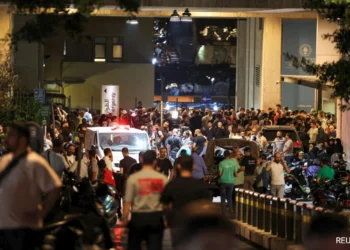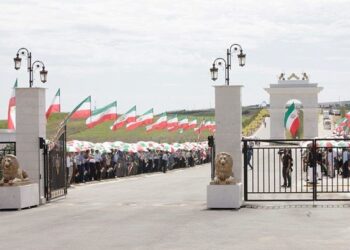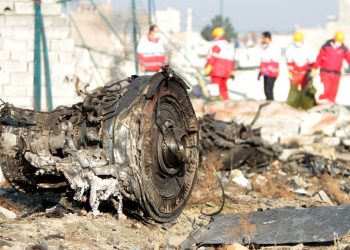Human Lives Human Rights: One of the major headaches for the United States in the Gulf region is the United Arab Emirates. The Afghan Taliban and their militant partners the Haqqani network earn “significant funds” through UAE-based businesses, according to one report.
The Taliban extort money from the large Pashtun community in the UAE, which is home to 1 million Pakistanis and 150,000 Afghans. They also fundraise by kidnapping Pashtun businessmen based in Dubai or their relatives.
“Some Afghan businessmen in the UAE have resorted to purchasing tickets on the day of travel to limit the chance of being kidnapped themselves upon arrival in either Afghanistan or Pakistan,” the report says.
Last January US intelligence sources said two senior Taliban fundraisers had regularly travelled to the UAE, where the Taliban and Haqqani networks laundered money through local front companies.
One report singled out a Kabul-based “Haqqani facilitator”, Haji Khalil Zadran, as a key figure. In an effort to stem the flow of funds American and UAE officials are increasingly co-operating to catch the “cash couriers” – smugglers who fly giant sums of money into Pakistan and Afghanistan.
US officials remain concerned that the Saudis will continue to fund al-Qaeda and other terrorist groups.
In April 2008, Undersecretary of the Treasury for Terrorism and Financial Intelligence Stuart Levey told the Senate Finance Committee that the Saudi government is “serious about fighting Al Qaeda in the kingdom, and they do,” and argued that Saudi officials’ “seriousness of purpose with respect to the money going out of the kingdom is not as high.” He added, “Saudi Arabia today remains the location from which more money is going to… Sunni terror groups and the Taliban than from any other place in the world.”
Al Qaeda affiliated terrorist attacks in Saudi Arabia from 2003 to 2006 appear to have given added impetus to the Saudi leadership in expanding counter-terrorist financing efforts. Since mid-2003, the Saudi government has: set up a joint task force with the United States to investigate terrorist financing in Saudi Arabia; shuttered some charitable organizations suspected of terrorist ties; passed anti-money laundering legislation; banned cash collections at mosques; centralized control over some charities; closed unlicensed money exchanges; and scrutinized clerics involved in charitable collections. 15 of the 19 9/11 hijackers were from Saudi Arabia.


















